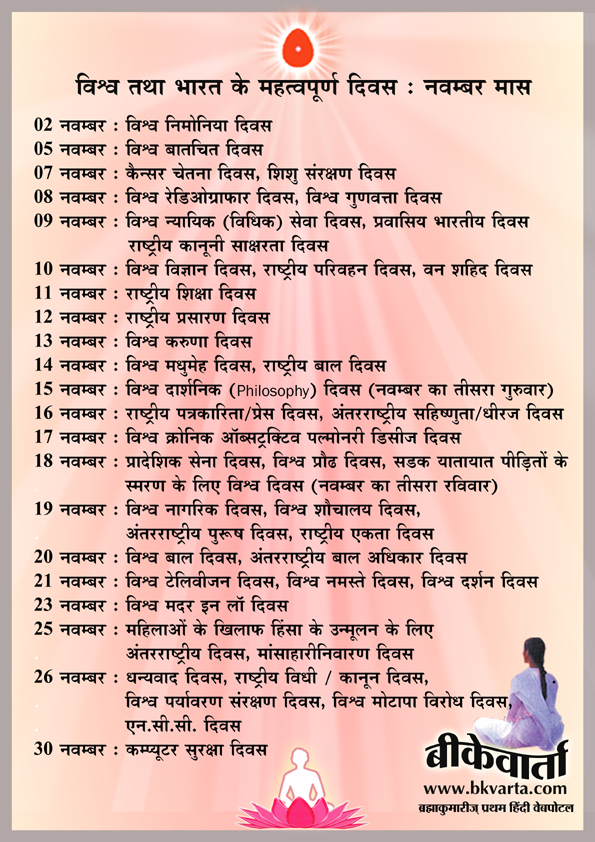ग्राम विकास प्रभाग

ग्राम विकास प्रभाग
Wing Objectives:
To improve the condition of rural children and youth through leadership programmes, child development camps, and character development programmes which emphasise moral values.
To eliminate mistrust, superstition, blind faith and unhealthy social practices through awareness campaigns, slide shows and lectures.
To foster healthy lifestyles through educational programmes in health and hygiene, special medical camps, and exhibitions and lectures aimed at reducing the incidences of smoking drinking, tobacco chewing and drug addiction.
To eradicate illiteracy through value-based educational activities for the young, as well as adult education programmes.
To enable individual spiritual empowerment of the indigenous masses through courses in Raja Yoga meditation.
Views and Perspectives:
In the not-too-distant past, India’s rural villages were settings of simple, healthy living. Farming and cattle-breeding were even considered ideal professions. When India achieved independence in 1947, more than 90% of India’s total population lived in rural villages and were primarily dependent on agriculture for their livelihood. Father of the nation, Mahatma Gandhi, referred to this vast human resource as ‘the soul of the nation’. However as towns and cities began to attract industries, educational institutions, engineering advances, and health services, the development of rural areas fell drastically behind that of urban areas. A significant percentage of the rural population migrated to the cities, resulting in urban tenements, poverty and squalor. While the advances of civilisation did not come to the countryside, negative side-effects of modern progress, in the form of inflated desires, selfishness, disease, addictive habits and violence, found their way into rural lifestyles. Handicapped by illiteracy and disenfranchised by the shift of economic resources towards urban development, India’s rural masses have lapsed into a backward state. Currently about 70% of the populace reside in villages and, although a number of rural development schemes exist, they primarily supply basic services such as roads, water, electricity, transport, etc.
The Rural Development Wing believes that spiritual empowerment can help the rural populace develop self-respect, co-operation and positive human values which will automatically motivate them to transform their habitats into havens of cleanliness, healthfulness, social harmony and productive human enterprise. With this aim, the Wing organises exhibitions, video and film presentations, and peace processions, and conducts camps, educational programmes and meditation courses at the village and district levels. Wing members also believe that rural development means not only educating the farmers and herdsmen, but also the administrative officials at the village and district levels (Sarpanak, Gram Sevak, Patwari, etc.), the officials and Board members of rural co-operative societies, the personnel of village development agencies, and others. The Wing arranges special seminars and conferences for such individuals and groups at the local level as well as in Mt. Abu.
With the spiritual empowerment of the rural populace, India’s villages will not only become clean and beautiful once again, they will become Gokul Gaon (ideal villages).
| Rural Development Wing | |
| B. K. Mohini, Mount Abu Chairperson, Rural Development Wing Ph: 02974-228101 Mob: 9414154334 E-mail: shantivan@bkivv.org |
B. K. Sarla, Mehsana National Co-ordinator, Rural Development Wing Ph: 02762-253746 Mob: 9825082813 E-mail: mehsana@bkivv.org |
| B. K. Raju, Mount Abu HQ Co-ordinator, Rural Development Wing Mob: 9414154151 E-mail: ruralwing@bkivv.org, rajumurli@gmail.com |
|



